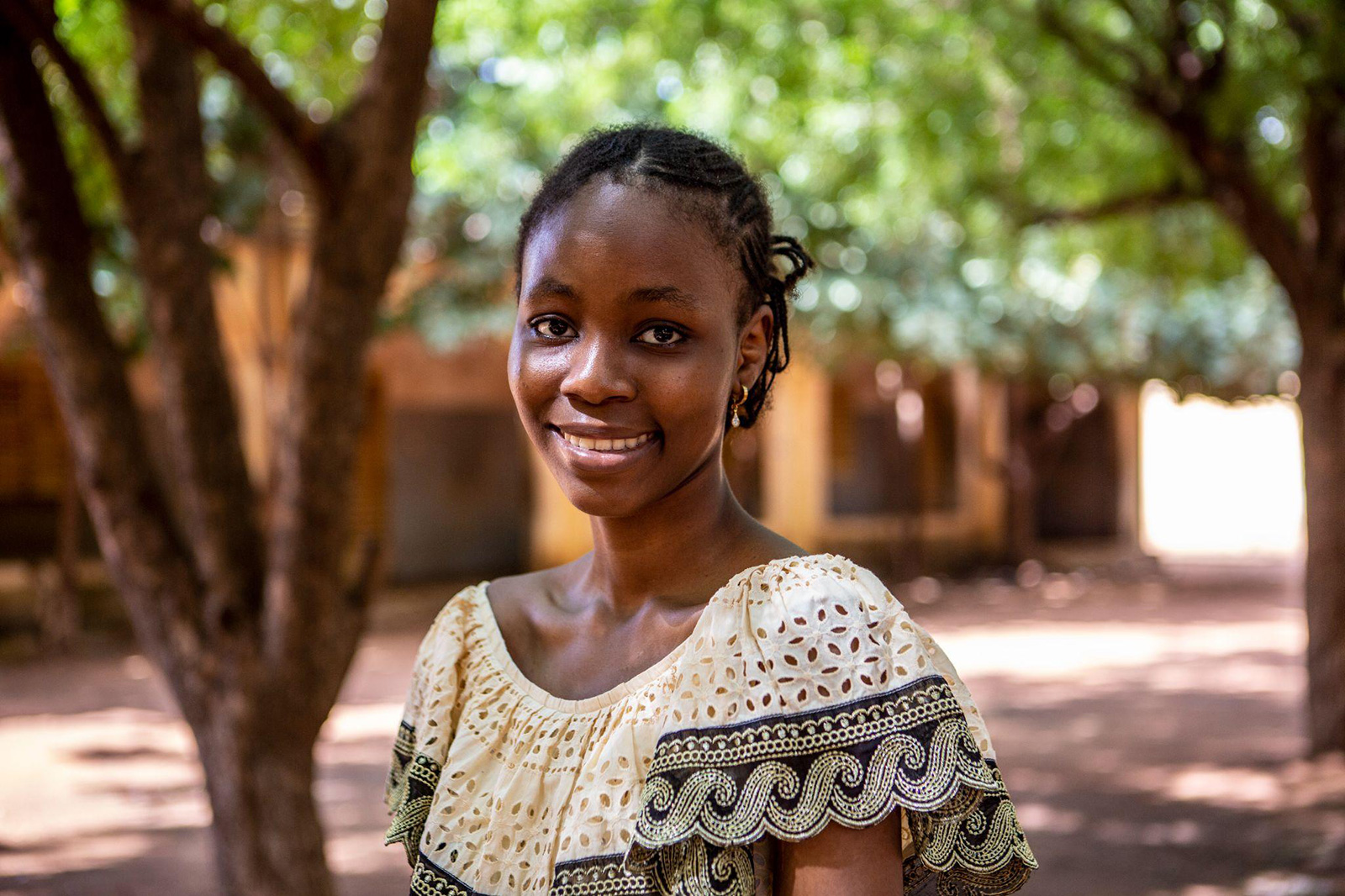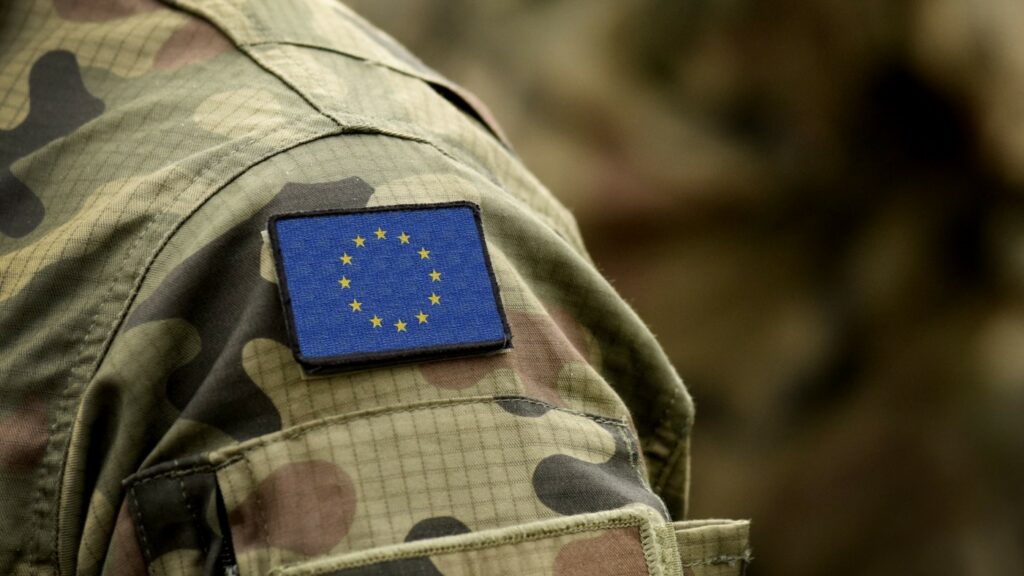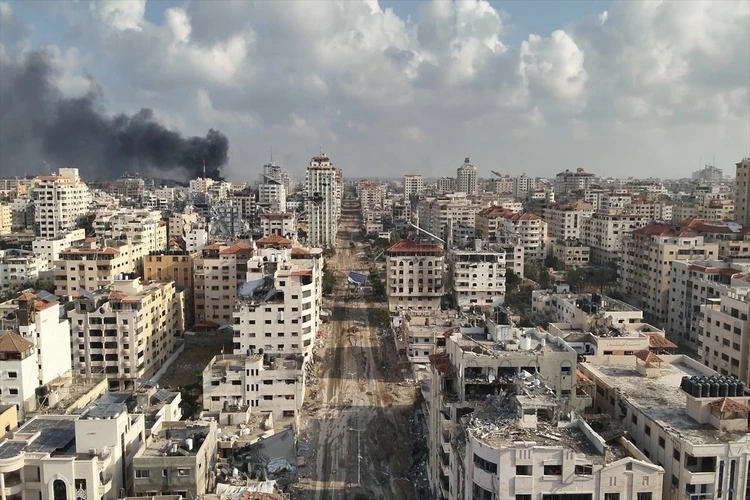Read the stories you made possible and let’s celebrate our success in building peace together!


[Testimony] – “Early marriage is a reality here in Mali. I have seen many of my friends get married and even get pregnant. I knew there would be repercussions or risks if they got pregnant, but I didn’t say anything. I didn’t know how to talk about it,” says 15-year-old Awa.
For a long time, Awa remained silent. “I didn’t talk much. I was pretty isolated.” Shyness. But also, some questions were not usually meant for children.
Yet, Awa took the plunge. Even though her words struggled to come out in everyday life, she finally took the microphone to make her voice heard. As part of the “Youth Talk” project, she and other young journalists produced radio programs on topics that affect children and adults alike. So when Awa had the opportunity to talk about early marriage on-air, her thoughts materialized. She knew her voice could make a difference.
“It gave me courage.”
Back at school, “I went to talk to my friends, some of whom were only 14, and I made them listen to the show.” That sudden bravery quickly became contagious. “They then took it upon themselves to talk to their parents about the dangers and told them they didn’t want to get married at an early age,” she adds.
As the programs went on, Awa grew in confidence. “I’m not the Awa I was before. I’m speaking out, and I’m proud to be heard, to know that I can change things.” Awa is not alone. The young journalists echo her; more voices mean more chances to find solutions to society’s problems.
“Children have a huge role to play. They represent the majority of the population here. We are the leaders of tomorrow. So change has to start with us.”
However, her audience is not limited to children. “We need adult support to make a difference.” And Awa is still surprised by the adults she has been brought in to meet. “We invited politicians, ministers,” the surprise is mutual. “They couldn’t believe the way we were expressing ourselves, the topics we were discussing. They said how happy and confident this made them about the future of Mali. This encourages us to continue in this way and to encourage other children to follow us.”
As the days go by, the limits of what the children can say, or do, become less and less. “Children shouldn’t be afraid; we are capable of anything. There are no small changes, the small change you can make today can become a big change tomorrow. This society belongs to everyone, young people or adults. So if we can make it better and safer, it will mean a safer society for everyone. So let’s dare!”

Between October 19 and 21, Search is organizing a Regional Consultative Forum entitled “Online Space, Peace and Conflict in the Sahel: Challenges and Opportunities for the Next Decade.” This meeting is a component of a more extensive program supported by Search: “Amplifying the expertise of African scholars and practitioners in peacebuilding.”
In the rapidly evolving online landscape of the Sahel, the internet presents both significant risks of fueling offline violence and polarization but also great potential to promote peace and bring people together.
Thus, this meeting will identify the challenges of online spaces in conflict dynamics and social cohesion and improve the exchange of information among actors with interests in online peacebuilding. Finally, it will provide recommendations to support the development of a healthy online ecosystem in the Sahel.


[Activity] – In June, the re-arrestation of a Biafran separatist leader has reignited long-standing tensions, casting a shadow over the upcoming governorship elections in the southeastern state of Anambra.
Indeed, our Nigerian team tracked 5,200 social media conversations describing hate speech on election-related issues.
In the southeast, as throughout the country, the rise of hate speech around electoral processes deepens ethnic, political, and other identity-based divisions, providing fertile ground for electoral violence.
For the past year, with funding from the National Democratic Institute (NDI), Search has been focusing its efforts on combating hate speech and strengthening civic engagement. Thus, the “Sustaining Electoral Engagement for Democracy (SEED)” project relies on actors trained in monitoring and early warning reporting and technology to monitor and analyze such speech and rumors online and offline. These analyses allow us to compile data and trends into monthly reports to share with our partners and the media to create a strategy to mitigate them.
In our last report, the demographic analysis highlighted the need to target media programs to the 24-30 age group, most active in these social media discussions. It also recommended increased advocacy for women’s participation in politics and governance, citizen education to reduce tensions along ethnic and tribal lines, and voter participation activities, particularly for the Anambra elections.
Read the report


[Testimony, by Niandou Djabeirou] – In 2015, Boko Haram made its first major incursion into Niger. When the extremist group entered Hassan’s village, a grenade explosion killed his wife, six months pregnant. Bosso became a no-go zone. Hassan, along with the rest of the villagers, fled to a nearby town, leaving behind their land and livestock, which were their primary source of income.
This insecurity, increasingly limiting the amount of arable land and access to natural resources, led to further conflicts, particularly between farmers and herders.
In the years that followed, Hassan became eager to make a change. First, he was elected president of the youth of his commune. Then, in 2019, he joined our project, “Youth, Peace, and Security.” Funded by the German Federal Foreign Office, the project aimed to build community resilience and respond to violent extremism and community conflict to stabilize the Diffa region.
“Youth, Peace, and Security” enabled Hassan to return to work through income-generating activities in sheep fattening. With this new financial stability, Hassan felt empowered to contribute to his community. Search then trained him in inter-community dialogue, mediation, and advocacy for the respect of the rural code, providing him the tools to do so.
Hassan became increasingly involved in his community, participating in sanitation initiatives, construction of community buildings, conflict mediation, and workshops to identify actions to address community challenges.
Specifically, Hassan focused on resolving conflicts between herders and farmers. Each week, he conducted advocacy on the rural code and dialogues on issues between the two communities. His sessions addressed the root causes of tension, such as field boundaries and passage corridors, compensation for devastated fields, and access to water points for livestock.
His efforts paid off. Conflicts between the two communities diminished: herders now seek prior permission before moving into pastoral areas, obstruction of livestock crossings has decreased significantly, and crop residues, once sold at a high price, have been given to herders free of charge.


[Activity] – The large diamond deposits in the endowed districts of Kono and Moyamba are still often seen by the population as a curse rather than a blessing. However, since 2020, our Sierra Leonean team has contributed to bridging the gap between mining companies, authorities, and communities.
Indeed, just completed, our GIZ-funded project “Strengthening Transparency and Accountability of Mining Communities in Moyamba and Kono Districts” has paved the way for trust and collaboration. To this end, the project has encouraged joint decision-making and increased response of local authorities and mining companies to the needs of citizens.
In Moyamba, for example, collaborative dialogue between different stakeholders has helped to address community needs, including the construction of a hospital by a mining company. At the same time, Search established a mechanism for stakeholder accountability while promoting community participation in development activities. Specifically, scorecard meetings were used to measure the progress of the various stakeholders’ commitments, such as this construction. Indeed, a Community Development Committee (CDC) organized weekly planning, monitoring, and site observation meetings with community representatives, contractors and mining companies. These meetings have further strengthened the collaboration, trust, and accountability between the CDC and the mining companies.
Learn more, click here


[Legacy] – Following closely behind Liberia and Sierra Leone, Talking Drum Studio Guinea (TDS) has become a separate local entity.
In West Africa, the drum is known as the musical instrument that “speaks” to unite. Its steady sounds can guide conflicting parties toward reconciliation. Embodying this concept over 20 years ago, Search established three Talking Drum production studios in post-war Liberia, Sierra Leone, and Guinea to sow the seeds of peace through innovative media programs.
Thus, the TDS team now draws on two decades of experience in building peace, promoting inclusive governance, and empowering youth and women to address the country’s most critical issues through television and radio programs, participatory theater, and public debates.
At the same time, Search continues to provide capacity-building support and strategic guidance through 2023 to ensure a smooth transition and strong positioning in the NGO sphere.
Visit TDS’ website to learn more

